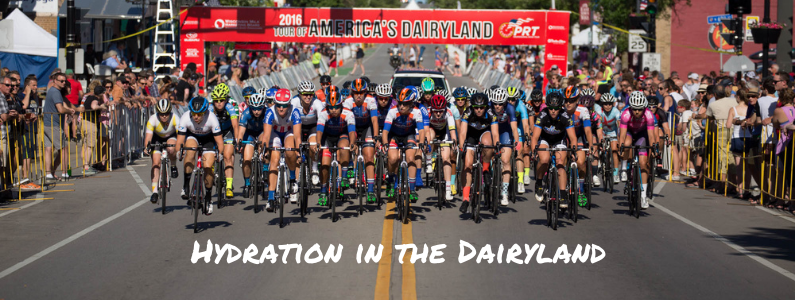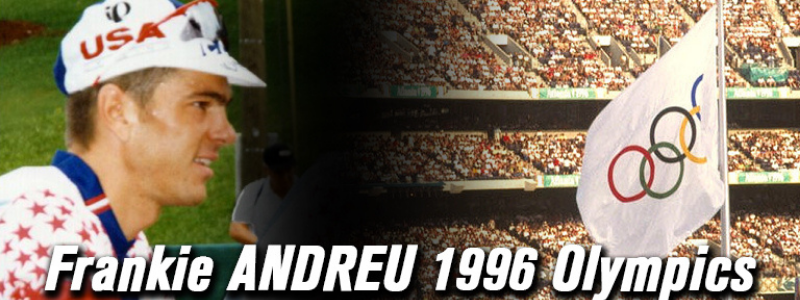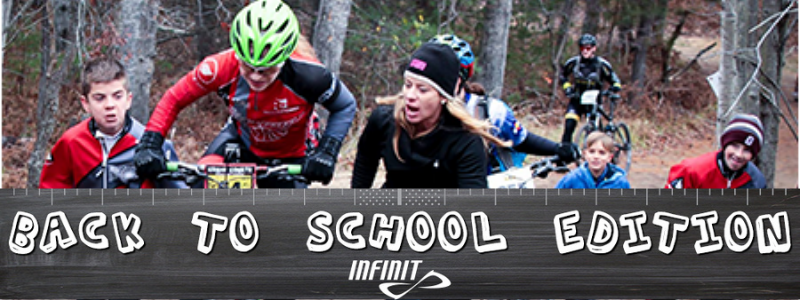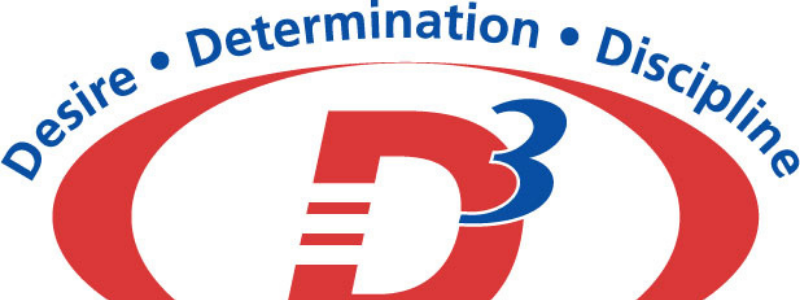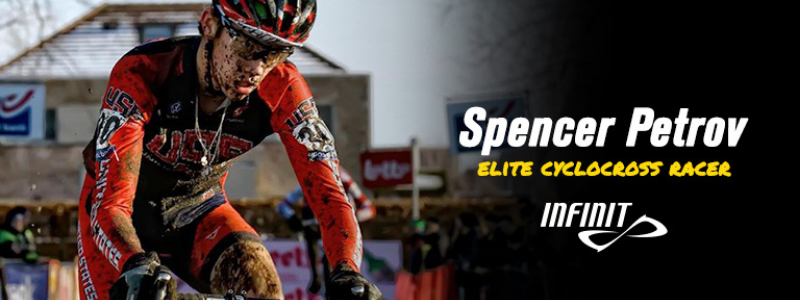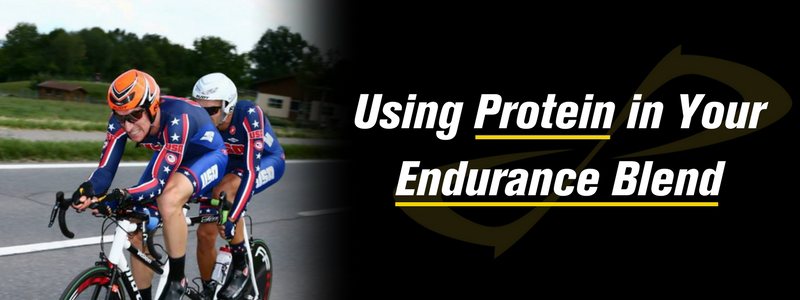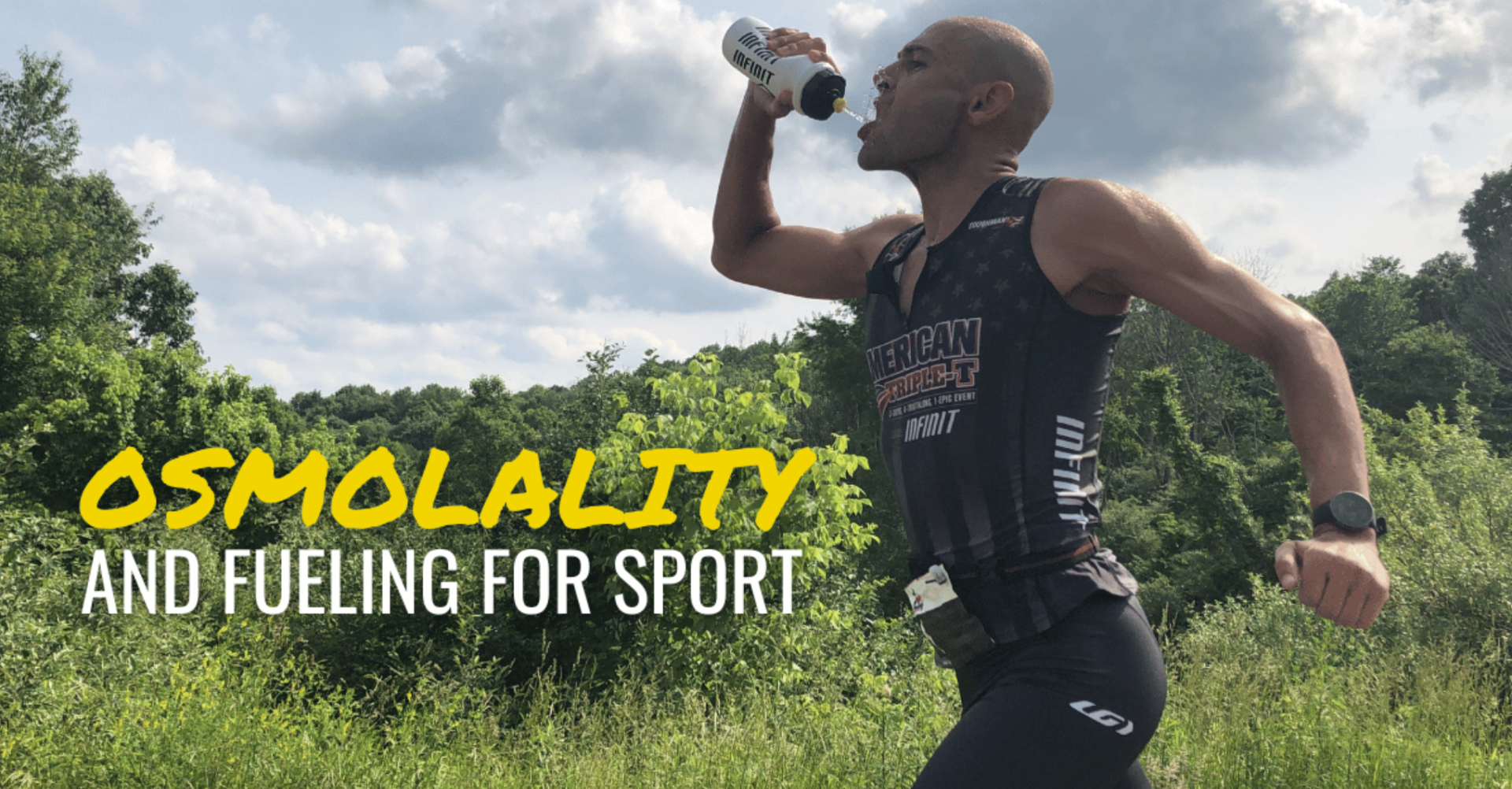Olympian Interview: Brian and Caitlin Gregg
- 30 Jul 2016
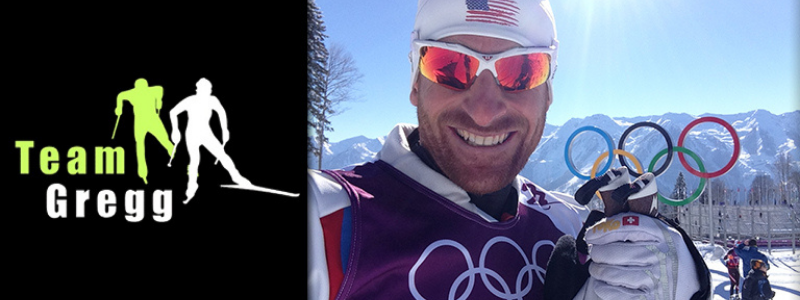
With the 2016 Summer Olympics in Rio fast approaching INFINIT wanted to get an idea of just what being an Olympian really means. To do so, we reached out to Brian and Caitlin Gregg, two Olympic skiers and INFINIT athletes, to see what it really means to represent your home nation on a world stage.
The following is an interview we conducted with Team Gregg:
So, you both have competed at the Olympics, Caitlin in 2010 in Vancouver and Brian in 2014 in Sochi. Do you have plans for future Olympics or have you started to wind that down for now?

Brian - Oh no! We’re full on training right now. We actually just put another order in for our training blend so that we can keep on track! Just a little background on us, Caitlin made the team in 2010, and then we got married in 2011 and Caitlin had told me that her goal was to help me make the Olympic stage, which I had wanted since I was 16, and she wanted to make sure that I made that team in 2014 so I was kind of the primary focus coming into the 2014 games. It sort of became a contested issue in 2014 that Caitlin didn’t make the team considering she had won the national championships that year, but anyway I came to make the team and Caitlin then went on to win the bronze medal at the 2015 world championships! So for right now we are focusing on the 2017 world championships because they are every other year and then ultimately the 2018 games in Peyongchang.
So is it fair to say that a sort of “lifetime goal” would be competing at the Olympics together?
Brian & Caitlin - Oh yea! That would be huge!
Brian - You know you put up there, winning a medal, and that was already pretty awesome so you know how do you top that? It would be extremely special for us both to be competing at the Olympic level together.
For the both of you, what really drew you to cross country skiing as opposed to downhill which a lot of people tend to go towards?
Caitlin - Well there’s two parts to it really. I have always had an affinity for running so kind of that endurance background, with alpine skiing experience and comfort on skis, made me a good candidate to give cross country a shot. And then the second part is that when I was in high school a friend of mine was joining the Nordic skiing team and the entire high school boy’s soccer team decided to try the cross country team and they had been trying to persuade me for some time to join the team so that kind of sealed the deal. So once I heard that I was on the team.

Brian - For me I grew up in a beautiful area for cross country skiing, the Methow Valley, where they have over 200 km of connected cross country ski trails. I was very fortunate that so many older athletes and coaches were just such strong mentors like my parents, other athletes and other coaches, they were the ones I looked up to for everything in life and certainly in the athletic pursuit. The passion they had for their sport and how they lived their life really helped me. When I was in junior high my coach, while coaching me, made the 1998 Olympic team, her second Olympics, and you know following that journey and saying hey this could become not just a dream but a reality was pretty exciting and is a big part of the reason we spend so much time working with the youth ourselves and we take that idea of “your dreams don’t have to just be dreams” and try to help them turn them into reality.
There is a lot of talk about the mentality of Olympians and what it takes to really dedicate yourself to a sport in that way so you have the ability to one day compete on that stage. When did you guys realize that you wanted to be more than just good athletes and had a dream to compete at the Olympics?
Caitlin - I think, you know, early on I always watched the Olympics as a child and I got pretty excited about the idea and the ideals associated with it, and I think that as I kind of moved up through the ranks I had a lot of people encouraging me and a lot of positive feedback, and I really enjoyed the hard work, the dedication, and all the hard work that goes along with being an Olympian.
I’m actually from New York city, in Manhattan, so you know I grew up riding the subway to school, and learned to ride my bike on the sidewalk in the inner city. But my parents actually met at a ski and bike shop when they were younger so they had a love for the sport and all sports in general, so when I was about 6 years old we were watching the Olympics and that’s what really got me into skiing.
"There was a huge jump in my career from the time I started working with INFINIT to making the Olympic team, and I think it has made a big difference." - Brian Gregg
When I was ten my mom, brother and I moved up to Vermont in a little mountain town area, and I remember telling my friends at school before I left that I was really disappointed that I was going to be heading out and I’d miss them but it fit perfectly with my dream to make the Olympics because it was really hard to make the winter Olympics living in the middle of Manhattan so going to Vermont was really a great opportunity. So I guess I’ve been really driven from a very young age and kind of that idea that dedication and commitment would allow me to succeed has helped me get to where I am now.

Can you tell us a little bit about what it’s like to be at the Olympic village? What’s the community and the atmosphere like when you’re actually at the games?
Brian - I think Caitlin has given the best description of this in the past because we usually talk about this in presentations we do or when we are working with kids, so if you think about what it would be like as a kid to go to Willy Wonka’s chocolate factory, if you’re an athlete that’s exactly what the Olympic Village is like. You know it’s just that kind of atmosphere, you’ve got the water fountain and then right next to it you have your sports drink fountain, I just wish it was INFINIT! But it is just an incredible environment, you have athletes from all over the world and so the food is set up to cater towards athletes with tastes and diets from all over the world, so you get an opportunity to taste and try all these things you may have never gotten the chance to. You’ve also got athletes competing at all different times of day too because of TV schedules and race set ups. You may not even have your race until 9 o’clock but it’s just awesome! You’ve got this party atmosphere because you made it to the Olympics you know, and you could say that this is the peak for everyone because it only comes around every four years but it’s really way more than that. This is something that most people there have been training for for well over a decade.
What are some of the things that you two were able to do while at the Olympics other than focusing on your actual race or training?
Brian - The one thing that’s pretty awesome is that as an athlete your credentials basically work like a ticket to every single event and venue you could want to go to. Most places even have an athlete section, that’s a great opportunity to go see some other events, meet other athletes, and just kind of enjoy the games. But for me I ended up competing on day 3 day 14 and day 21 so I really only had like one day to leave and enjoy Sochi outside of the three Olympic villages.
Caitlin - And for me I was on pretty much the same type of schedule in Vancouver where I was competing basically the whole time that I was at the games, and when I wasn’t competing I was at the venue cheering on my teammates and preparing for the next event. My family and friends that were there though got to go see a ton of different events and enjoy the night life which is pretty fun as well. The village we both stayed in was actually the endurance village which was cool that they kind of split it up that way but on the last night of the closing ceremonies we both got to go out and see Vancouver but really the best part is meeting other athletes, hearing where they came from and how they got there and learning about what their lives are like.
Brian - One cool thing too is that there is a team USA house and then there is a “family home”, that P&G sponsors, that is really a cool house or meeting place that each athlete and four family members get passes to that’s essentially a restaurant/bar, but mostly an opportunity to meet other families that are part of the team. It’s just a great place for other Olympians and their families to come together and watch other events and get to know each other. It becomes sort of one big family out there especially in the winter Olympics when there is only 180 winter Olympians each year. But that’s I think a really cool thing that P&G does to really bring the community together and create an Olympic family.
With the amount of time that you spend with each other there, have you developed any lasting friendships that exist outside of the games?
Brian - It’s actually funny we have a friend, Gwen Jorgenson, who is going to Rio for triathlon and she is also from the twin cities. So on more than one occasion we have shown up to some random 5k event and she has been there too, which makes the event a lot more fun having three Olympians there to compete with! But she is stiff competition, for sure.

So Caitlin you won bronze at the 2015 World Championships, one of only 12 medals ever given to the US of the over 1000 that have been presented, how does that compare to competing at the Olympics?
Caitlin - So its really exciting, because that world championship is going to be mirrored at the Olympics. So that same event that I medaled in in Falun will be the same event in Peyoncheng, and I’ve already had an opportunity to compete in Peyongcheng before. I love the courses there. So that’s definitely the goal, to be in that 10k event, and be in medal contention. Another area that I would love to be a part of is our relay team, which races in a 4x5 km race. I already have an affinity towards skate skiing, so I would love to be one of the skate legs on that team as well. Although the [World championship medal] doesn’t guarantee a spot in the 2018 games, I have been focusing on my skate skiing and taking that to the next level to make sure I can secure a spot for both of those events in Peyongcheng.
Brian - Watching Caitlin win that medal was really a dream come true. It was kind of a bittersweet moment when we were both over in Europe and I got the email saying I had made the 2014 Olympic Team, and obviously I was extremely excited and elated about that, but at the same time reading the email that Caitlin hadn’t made [the Team] made us realize that those low points and struggles really make the successes even greater. When Caitlin got to climb that podium in Falun, it really made it such a special thing - that no matter what your career is, you are going to have highs and lows. It shows that importance of really believing in yourself.
"You need to always be a student to your sport and really embrace the entire lifestyle." - Caitlin Gregg
You asked earlier about when we realized you were more than just good and that we could make it to the Olympics... I think it’s important to sort of stay modest, but you also need to have that confidence within and almost belief that you are way better than anyone else thinks you are to have that success. That’s a really important part, you don’t really need to act that way, but at the same time you really need to have that confidence in yourself.
Confidence in yourself is definitely a really important part of competing, especially when you’re in a sport that you really don’t rely on team. As an Olympian do you feel some pressure being on a world stage, and representing the country, or do you still mostly compete with yourself out there?
Caitlin - I think for me, I really like that pressure. You know through the years I have learned to take that pressure and focus it on myself and kind of use it to get excited about the race. You think about all these people watching you, and having the country relying on you; it helps to get me focused. It’s also a great opportunity for the world to see a sport like cross country skiing that people may not really know all that much about. It’s a good way get people interested in the sport especially if they get to cheer you on to a win. So really I kind of feel the opposite of how you would expect, rather than getting nervous or folding under the pressure, for me it’s all motivation.
Brian - I think we both really enjoy that pressure and having people talk about cross country skiing, because really outside of that Olympic cycle it doesn’t get a whole lot of publicity. It is something we are both extremely passionate about so being able to put it in the best light possible is amazing. And since [the country doesn't] really have a lot of medals or world championships in the sport, it’s really important to get kids more involved and get them to think “Hey, I want to be one of those first people to win a gold medal for cross country!”
Getting people more involved in the sport is definitely a huge plus, considering endurance sports in general don’t get the same publicity as say football or baseball.
Brian - I think that as far as the Olympics go, the coverage over the last few years has come so far, for the better. You really have the ability to watch any event now, and we have seen a huge increase in popularity as more and more people get exposed to the sports we are a part of. I think the increase in technology has really given some of these smaller sports an opportunity to grow that they really never had in the past.
Nutrition has also come a long way over the last decade, especially for athletes. How has working with INFINIT affected your performance?
Brian - For myself, switching to INFINIT was a huge thing. I’m one of those guys that burns a lot of energy pretty quick, so I had a ton of trouble balancing all those bars, gels, pills, and all kinds of different things. To simplify my nutrition needs on the racecourse, and beforehand in training, has made a huge impact on my performance. There was a huge jump in my career from the time I started working with INFINIT to making the Olympic team, and I think it has made a big difference.
Caitlin - I think INFINIT for me has really been awesome because we have one product we can use in all parts of our training regime, whether it’s the before, during or after, we have confidence that the product is effective and it keeps things so simple for us. I think it’s really impacted my training because there’s just less thinking and worrying. I don’t really think about what my next move is in terms of nutrition, regardless of what my training is like for the day. I have a really set plan with INFINIT that gives me confidence that I will have the fuel I need to recover after a hard workout, the fuel I need to get ready for a big event, and then during the event I know I’m going to feel fantastic. Napalm is my above and beyond favorite. Like my FAVORITE! I always recommend it to people. They love the name and then they try it and are like, “Ooohh I feel really good right now!” It has become my go-to, for sure.
I also really love MUD! The combination of chocolate and coffee with flax in there is amazing. I think it’s a fantastic product, and I love drinking it. I try to get my coffee drinking friends to try it without telling them that it’s also a recovery product and meal supplement, and every single one of them is blown away by the taste when it also has so many benefits.

For someone that has dreams of competing at the Olympics someday, what’s the best advice you could give them?
Brian - I think the biggest thing is persistence, belief in yourself, and to surround yourself with people who also believe in you and who help to raise you to the level that you are aspiring to be at. There will be people along the way that say "it is too hard," or "it can’t be done," or "you’re too old and it’s not going to work out," but you just have to smile and nod at those people and surround yourself with a strong positive environment that you believe in, and just enjoy the process. I think throughout my career, that Olympic mantra, "enjoy the journey not just the destination," has been hugely important. Looking back at making the Olympic team, and our whole athletic career including Caitlin winning a medal at the World Championships, is really crazy. You know, the story of what we have done, how we did it, and the story behind it means almost as much as the results themselves.
Caitlin - I really agree with Brian, but also want to add that you need to always be a student to your sport and really embrace the entire lifestyle. I just spent a week training with some up and coming junior athletes who have aspirations of making the Olympics at some point and I was there to give them an idea of what the lifestyle of an Olympian is like and how I approach training, nutrition, and the psychology of it all and also I got to share just how much I love the sport and the life I have built around it. I am enjoying what I do and learning every single day and that’s a major part of how I got here. Even when I’m working with younger athletes, and I’m supposed to be “The Olympian,” I always take lessons from the people around me. Always learning and having that growth mindset is really important.
Do you think having a spouse that competes in the same sport as you gives you a unique advantage?
Both - Oh yeah!
Brian - Having someone there that really understands the process, or why you may be late to an event, or why you're worn out at the end of the day is amazing. You have this other person there to push you to improve but at the same time support you, and I think that has given us both an advantage in our careers. Even some days when one of us may not have the best race but the other one does, you have that joy there that you wouldn’t have alone.
Caitlin - It’s great to be able to boost each other up. You know, every day we’re out there competing with each other, so we kind of push each other to have the best workouts we can and the best races. It also keeps us honest about getting all of our training and recovery in so we can turn that competition into a positive. I have my best friend there to keep me reminded of what the ultimate goal is and that has totally changed my athletic career.
Thanks for giving us an inside look at the Olympics and what being an Olympian means!
Brian - Of course! Unfortunately, the challenge at the Olympics due to rule 40 (restricts use of athletes identity for promotional purposes during the Olympics games) we really can’t promote INFINIT while we are there but since it’s the off-season this [was] a great opportunity to kind of give back to you all.


